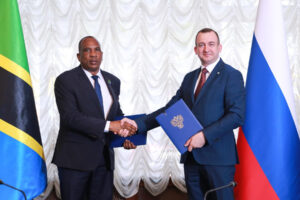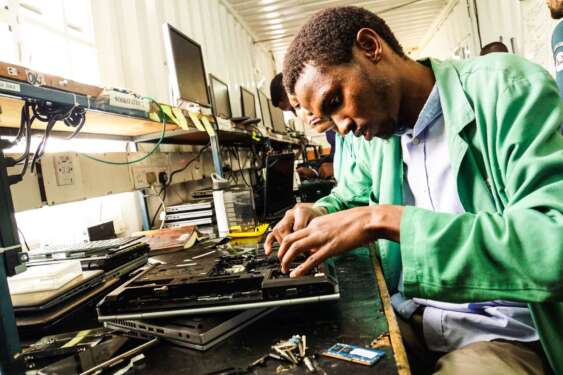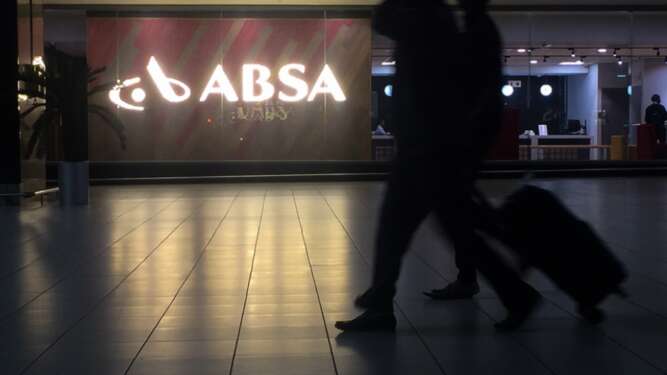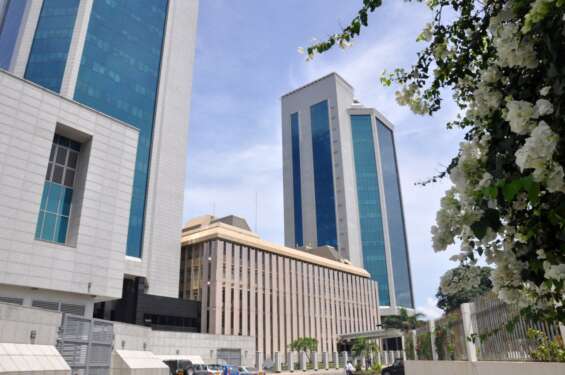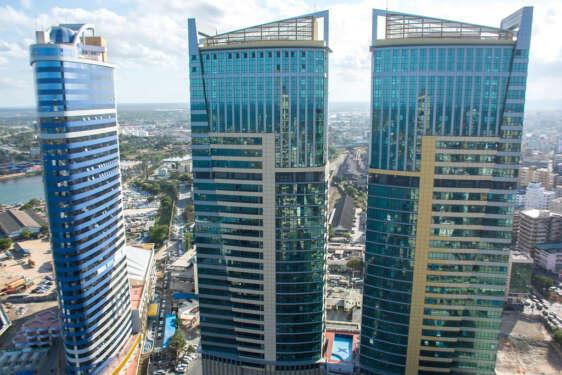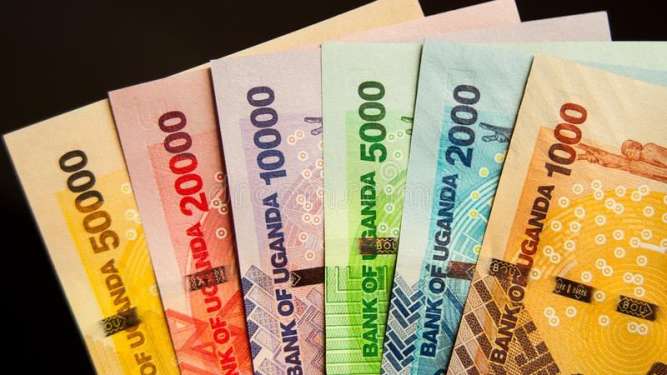- Russia and Tanzania unite to double trade, boost Africa market access
- History as Janngo Capital seals Africa’s largest gender-equal $78M tech VC fund
- South Africa Budget Disappoints Investors as Deficit Widens
- Kenya drops to 6th place in Africa trade barometer
- Tanzania’s bold move to boost cashew nut exports by 2027
- Chinese cities dominate global list of places occupied by billionaires
- Sudan tops up as Africa aims for $25 billion development fund
- Opportunities for youth: Tech firms Gebeya and NVIDIA to train 50,000 developers in Africa
Browsing: East Africa
You have a debtor, it is time for them to pay, you pick up your mobile phone dial the number and the most annoying automatic response comes on; ‘Sorry, the number you are calling is not available.’
Upset you hang up and redial, same message, now you are really getting mad, you hang up redial and voilà! You are connected. You exchange a barrage of why are you switching off your phone, they reply no, my phone was on, you finally settle on, it must be bad network! (https://vulcanpost.com/)
Sound familiar?
Well here is some good news, finally the telecomm services watchdog, the Tanzania Communications Regulatory Authority (TCRA) has taken note of this poor service ordeal and taken action.
Six telecoms fined for poor service delivery
Six major mobile phone operators have been slapped fines reaching a grand total of USD16.4 million for what authorities …
In its fight against Covid-19 Rwanda has opted to have robots replace humans when coming into contact with infected persons.
With the support of the United Nations Development Programme (UNDP) Rwanda is to deploy its second set of three ‘THOR UVC’ robots.
What are these avenger bots all about? As its name suggests, the THOR ultra-violet (UVC) uses UVC to disinfect. Using room mapping technology, THOR UVC is able to go around a given cleaning space and disinfect it efficiently.
It uses UVC energy to kill germs and pathogens that way, the robots minimize contact of persons with the pathogens. So the deployment of the THOR UVC robots will help clean and disinfect Covid-19 risk areas like hospitals.
The robots will also serve to disinfect areas of mass gathering like border areas and market places as well as office spaces.
This second dispatch of robots was handed over on …
According to the Global E-Waste Monitor Report, in 2019 the world generated 53.6 million metric tonnes (Mt) of electronic waste (e-waste), and only 17.4 per cent was recycled through appropriate channels. Africa in particular lacks formal governance to support e-waste management.
Households in Africa generated 2.9 Mt of e-waste in 2019, of which only 0.9 per cent was reported to be collected and recycled by the formal sector. Discarded equipment such as phones, laptops, fridges, sensors and televisions contain substances that pose serious environmental and public health risks, particularly if treated inadequately.…
[elementor-template id="94265"]
Absa suffered a major data leak in South Africa and even though the breach did not occur at the bank itself, the data leak still raises security questions concern the safety of client’s money.
Absa is new in Tanzania, the newest big player in the banking industry and has invested a great deal in creating a positive image. However, earlier this month, that image was gravely tainted after an Absa employee allegedly leaked some of the bank’s customer data.
The incident occurred in the bank’s South African main branch where it is reported that the said employee provided customer information to unknown third party interests. The leaked customer info included client ID numbers, bank account numbers, credit card numbers and even mobile phone numbers.
The information that was leaked includes names and surnames, identity numbers and physical addresses, the bank admits.
Further still it also admitted other leaked data includes …
Only a fort night after the collapse of Beit-al-Ajaib or the House of Wonders in Stone Town, Zanzibar, the island’s tourism earnings are reported to be down 38 percent compared to last year.
The report comes from the Bank of Tanzania (BoT) which states that despite the tourism sector racking in a surplus of $62.7 million, however this is still 37.7 percent lower than what it was able to amass during the same period in 2019.
Zanzibar’s economy greatly relies on tourism and historical sites like the House of Wonders are a great attraction for tourists. Now with the building having collapsed during restoration efforts, the island is suffering the effects.
Granted the single event is not the cause for the dropped revenue, which the BoT blames on Covid-19, the loss of such an important site has an impact in the sector.
In its monthly economic review for December, BoT …
Tanzania central bank last week produced a monthly economic review for December 2020, which depicted rather a range of issues, for instance on revenue performance being broadly in line with the 2020/2021 target.
Inflation
According to the recent report, the annual headline inflation slightly eased to 3.0 per cent in November 2020 from 3.1 per cent in the preceding month. The central bank argues that this was largely attributed to the slowdown in food inflation, stable exchange rate and moderate oil prices in the world market.
Hence, the inflation rate remains within the regional benchmarks and is below the country medium-term target of 5 per cent.
“On a month-to-month basis, headline inflation increased to 0.3 per cent in November 2020 compared to a rate of negative 0.1 per cent in the previous month and 0.5 per cent recorded in the corresponding period in 2019. Inflation is projected to remain in …
The year 2020 had a lot of events across the development aisle, and Tanzania’s economic upgrade from low to lower-middle-income status by the World Bank (WB), is worth noting as one of the success stories.
There have been a number of forecasts on the economy of Africa and Tanzania at large, with a variety of predictions which point at different directions.
On June 11 2020, the Tanzanian government confidently, via the Ministry of Finance and Planning stated that the nation’s economy is expected to grow at a rate of 5.4 per cent in 2020 compared to earlier estimates of 6.9 per cent.…
[elementor-template id="94265"]
Every year, the L’Oréal Fondation along with UNESCO short lists 20 African women researchers for the academic excellence of their work. The young women then, enter the Sub-Saharan Africa Young Talent Awards For Women in Science.
Sourced from 16 countries, these 15 PhD students and 5 post-doctorates embody, through their backgrounds and research subjects, all the diversity and potential of tomorrow’s African science – L’Oreal.
The shortlisted 20 youth had to fight their way through a maze of nearly 330 applications. The submission were sifted through by a jury that was Chaired by Professor Nelson Torto who is the Executive Director of the African Academy of Sciences.
“They all have in common the excellence of their projects and the desire to contribute to fueling innovation in Africa” he commented.
“They are joining the community of 3,400 women researchers around the world who have been supported by the For Women in …
Airtel recorded a 14 per cent growth in revenue to $ 659 million in East Africa for the six months ending September citing an increase in subscribers.
According to Airtel’s financial report, voice revenues saw a growth of 5.4 per cent to $312 million across the East African market which includes Uganda, Kenya, Tanzania, Rwanda, Malawi and Zambia.
Data service recorded a 21.2 per cent growth in revenues to $ 174 million while mobile money as well saw a 33.2 per cent growth in revenues to $132 million during the period under review.
The telecom said that the double growth in revenue is due to an increase in subscriber numbers from 12.1 million to 14.9 million as well as 4G infrastructure network expansion from 60 per cent to 68.6 per cent of the sites in the period under review.
“Our mobile network in Uganda, Zambia and Malawi now consists of …
East African countries have had a tough balancing act in 2020 as the Covid-19 situation oscillated from good to bad over and over again. This is reminiscent of the global situation where central banks have been forced to use high-level tuning and juggling to ensure their currencies don’t fall beyond repair. Even the US dollar, the main international currency has suffered repeatedly with Chinese Yuan and Euro pushing it against the wall.
In East Africa, a tough monetary policy by the central banks has seen currencies remain stable though with significant losses. Kenya for example, has seen its shilling lose ground to the dollar by almost seven points. The Rwandan franc and Tanzanian shilling have survived the wave while the South Sudan pound has been hit hard.
The East African region is primarily a traditional shilling zone that was introduced by the British rulers and used in Kenya, Uganda, Tanzania,
